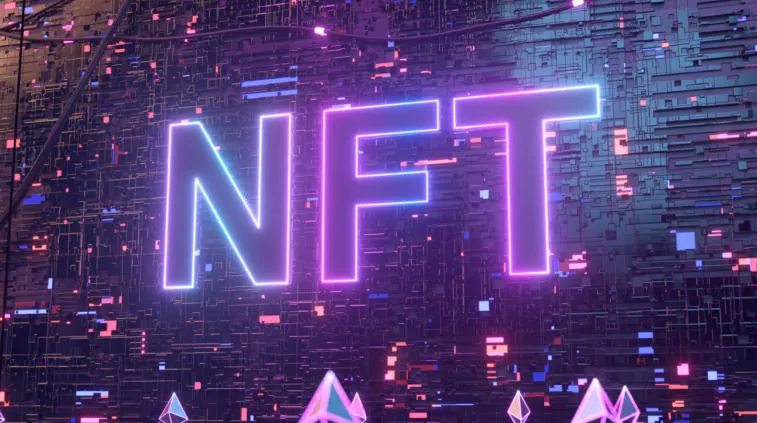The AppStore now has the ability to buy/sell NFTs
Apple has added the ability to buy and sell NFT tokens to their AppStore. In addition, the company once again updated the rules in the store, adding a clause related to non-fungible tokens. The business could not have done without their signature feature of 30% commission, and in this regard, the set of rules is designed to deprive sellers of legal loopholes to bypass sales commissions.
The new section of fungible tokens in the AppStore will be called the AppStore NFT. Purchase/sale there can only be carried out through the internal payment system, and therefore unlocking functions related to cryptocurrencies, wallets, QR codes and others will not be available in various applications, which may make it possible to bypass the purchase in the store. More stringent rights are expressed in the fact that sellers must have a license to sell in their country, which not every AppStore seller can get.

The AppStore has always been criticized by many users and companies for its very high fees. Nevertheless, such a move by Apple may allow attracting a new audience to the crypto industry, and in particular in the field of NFT tokens and crypto gaming. Many people outside of cryptocurrencies still do not understand the complex processes of buying/selling tokens and therefore refrain from exploring the world of cryptocurrencies.
Mattias Tengblad, CEO of Corite, which provides users with a platform for trading NFT tokens, considers this move by Apple to be positive:
It is likely that many marketplaces will create iOS apps that allow users to organize and view NFTs. At the same time, a browser interface will be used for buying and selling. Commissions can be bypassed. But the fact that NFTs have entered the mainstream and the biggest tech companies are forced to change their policies on them is an encouraging sign.
Astaria protocol manager Chandler De Kock agrees with him:
Large technology companies are increasingly using non-fungible tokens. This once again confirms that people are interested in NFTs.
At the same time, De Kock believes that Apple's attempt to enter the NFT sphere is mostly a search for additional opportunities to maintain its status as a large monopoly:
NFT is a Web3 technology, do not apply Web2 policy to it. Apple lacks a subtle understanding of the market it is trying to enter.
While Corite CEO Matthias Tengblad called the new AppStore features good, he doesn't rule out the possibility that Apple might alienate developers and users. He of course linked this to high commissions:
Huge fees will force people to look for other methods of buying and selling NFTs, he shares, and it will be much more difficult for developers who have spent time and resources to create iOS applications to attract and retain users.
Yan Korzin, a lawyer known for his work in the field of consulting on the metaverse, spoke negatively about Apple's entry into the NFT industry. He rightly noted that the interweaving of Web 2.0 technologies is contrary to the promotion of Web 3.0, which is what the NFT culture, in fact, is.
Chandler De Kock believes that due to the differences in capabilities between Web 2.0 and Web 3.0 users, these two areas will have to find common ground and some compromises:
The Web3 space is starting to interact more and more with Web2 technologies. Therefore, he will have to come to terms with his rules and standards. Either way, I expect other tech companies to follow Apple's lead.
Apple previously banned Telegram users from selling paid content through third-party bots on the messenger in order to provoke them to only sell on the AppStore. Pavel Durov, who founded Telegram, was unpleasantly surprised by such demands on their part:
This is yet another example of a trillion dollar company abusing its market dominance at the expense of millions of users who are trying to monetize their own content.

As a result, Durov decided to disable paid posts on mobile devices running iOS, but notified content creators about the upcoming emergence of other ways to monetize content, which will be outside the Apple economic system. I hope regulators in the EU, India and elsewhere take action before Apple crushes more dreams and crushes more entrepreneurs with a tax that is higher than any government VAT.
Previously, Apple entered into a serious battle with Epic Games, who found a loophole in their rules and sold Fortnite in-game content by bypassing the AppStore payment systems for more revenue and the case went to court. Ultimately, Epic Games was declared a loser in this case and was forced to pay Tim Cook's company $3,600,000, which is 30% of the proceeds from what the Fortnite developers managed to earn from such a loophole. Despite this outcome, it is also hardly possible to call Apple the winners, since after Fornite left the AppStore they lost a lot of earnings, and Epic Games, in turn, do not agree to sell in-game items in their game with a commission of 30%.
Returning to the topic of the NFT-sphere, it is worth noting that the volume of trading in the industry of non-fungible tokens exceeded the $23,000,000,000 mark. OpenSea naturally became the leaders in terms of sales along with the LooksRare platform.
The most popular platforms for buying and selling non-fungible tokens are LooksRare and OpenSea. It would seem that the market is already ready to develop independently and not take Web2 companies into account.

Comments